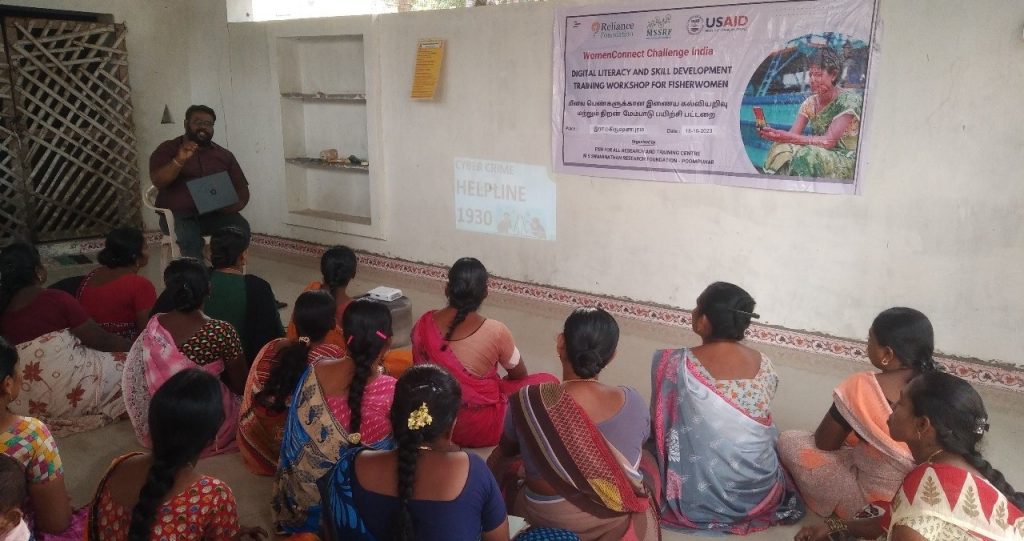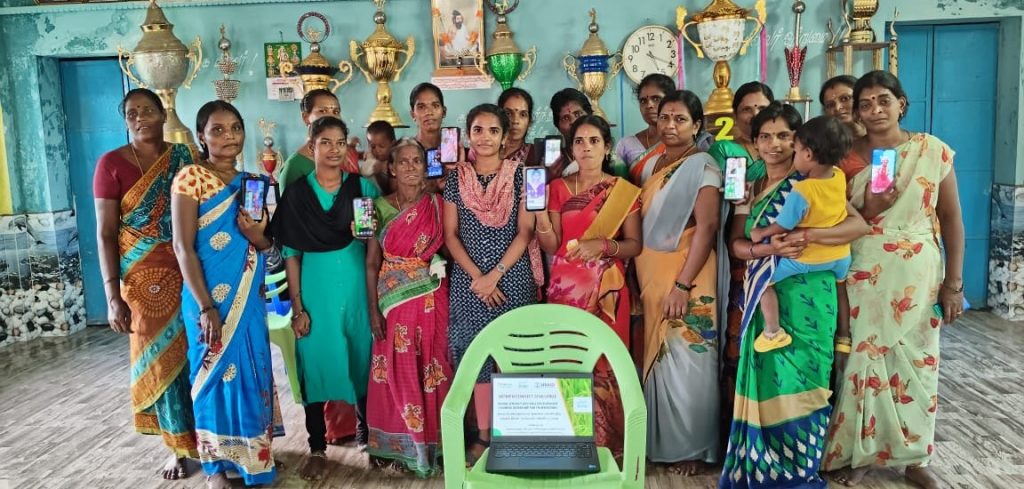With comprehensive training on mobile phone and internet use, we can build confidence to access knowledge on post-harvest fisheries and marketing
This is the digital age, and the Internet has become an integral part of our lives. It has revolutionised the way we work, socialise, and connect with the world. However, as the digital world expands, so does the realm of cybercrime.
Cyber threats know no boundaries, and everyone, including women, must be vigilant when it comes to online safety. Cybercrime encompasses a wide range of illegal activities that target individuals, organisations, or governments through the use of digital technology. This includes identity theft, online scams, phishing, hacking, and much more. Women are not immune to these threats, and understanding risks is the first step to stay safe. Therefore, it’s crucial to emphasise the importance of cybercrime safety and protection for women involved in agriculture and fisheries, also the related interventions.
The WomenConnect Challenge, implemented by the M S Swaminathan Research Foundation (MSSRF) with the support of Reliance foundation and USAID in the coastal fishing villages of Tamil Nadu, is a transformative initiative that empowers fisherwomen by educating them on digital literacy for post-harvest fisheries. The programme provides comprehensive training to help fisherwomen use mobile phones and the internet independently, and to confidently access knowledge on post-harvest fisheries and marketing.

During the training sessions, it was observed that 90% of the fisherwomen lack knowledge of mobile phone use, while the remaining 10% were hesitant to use mobile phones due to fear of messaging and online transactions. These women expressed a range of concerns including doubts about the safety and accuracy of online transactions, as well as consequences of making errors while using digital technologies. To address these concerns, we provide fisherwomen with comprehensive education and training on digital literacy, along with info about risks associated with cybercrimes, as well as how to navigate the digital world safely.
The programme includes a series of digital literacy training interventions that provide knowledge and skills necessary to recognise and respond to cyber threats effectively. Through these training sessions, fisherwomen are made aware of the various types of cybercrimes that they may encounter such as phishing, identity theft, and online scams, and are taught how to avoid falling prey to them. They are also educated on the importance of protecting their personal and business data with strong passwords, encryption, and regular data backups.
The training sessions emphasise the need for fisherwomen to review and adjust the privacy settings on their social media profiles, limiting the amount of personal information they share publicly, and restricting who can view their posts and photos. They are also advised to be cautious about sharing their exact location in real-time, especially when fishing alone as it could be used against them.
To ensure better security for online transactions, fisherwomen are encouraged to use secure payment methods and platforms such as BHIM, and to ensure that websites and online stores have appropriate security measures in place. They are also made aware of the risks associated with clicking on unknown apps and links or sharing OTPs. Finally, the training sessions also cover the importance of reporting cybercrimes to relevant authorities such as law enforcement and cybersecurity agencies, and to save the cybercrime helpline service number 1930. By following these guidelines and staying vigilant, fisherwomen can protect themselves from cyber threats and stay safe while using the internet.
MSSRF’s commitment to empowering fisherwomen in the digital era has led to the development of an extensive package of services that are designed to raise awareness about the potential risks associated with the use of digital technology while also providing comprehensive training on how to mitigate these risks.

We are implementing a series of audio advisory services that will provide fisherwomen with up-to-date information on cyber harm, protection, and safeguarding. This service will be accessible on-demand via mobile devices and will be available in local languages to ensure maximum reach and effectiveness.
MSSRF is also developing a mobile application that is exclusively designed for fisherwomen in the post-harvest fisheries sector. The application will contain a dedicated section on cyber harm and preventive measures for women while using digital technology. MSSRF is confident that these initiatives will go a long way in empowering fisherwomen to confidently and safely embrace digital technology in their daily lives.
Disclaimer: A version of this blog was posted on www.womenconnect.india.com

